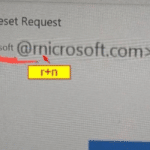Healthcare has its own set of unique speeds to help accommodate the different patients who come through its doors. While managing patient data is crucial, finding ways to streamline healthcare operations without wasting time or risking security breaches is just as critical.
In this blog, we will explore what managed healthcare services can do.
Managed IT Services are outsourced tech services that include monitoring, support, security, and maintenance, but they have been adapted for the complex needs of healthcare.
They cover everything from protecting patient data (hello, HIPAA) to ensuring smooth electronic health records (EHR) access without downtime or data loss.
For healthcare facilities, it's about creating a seamless digital environment so staff can focus on patients, not troubleshooting tech issues.
But why is this important for healthcare?
Because healthcare relies on fast, reliable, and secure tech more than almost any other industry, managed IT Services give healthcare providers the tools to deliver safe, high-quality care every day.
As of October 2021, nearly 28 million adults in the UK were registered with NHS login, the service supporting the NHS App meaning its even more important to have a fully functioning it support and management system.
Patient data is sacred, and data breaches are not only a risk but a costly risk.
Managed IT Services prioritise cybersecurity with firewalls, multi-factor authentication, intrusion detection, and more. Third-party managed services providers also maintain regulatory compliance (HIPAA, GDPR) so healthcare providers don’t risk fines or reputational damage.
Without Managed IT, healthcare teams could be vulnerable to security threats they didn’t see coming.
Healthcare doesn’t take a break, and neither should your IT.
With Managed IT, you get round-the-clock monitoring and support. It means detecting and resolving issues before they snowball into real problems.
This can be the difference between a brief outage and a major disruption to patient care, and with 24/7 support, clinicians and staff get the help they need anytime, which is essential when lives are on the line.
When patient records are at stake, data loss is not an option.
Managed IT Services include data backup solutions that keep critical information secure. If there’s an outage, a data loss incident, or even a natural disaster, backups can be restored quickly.
No more worrying about critical data disappearing when you need it most.
Healthcare has strict data privacy laws. Failure to comply can lead to serious penalties.
Managed IT Services can handle the heavy lifting with compliance audits, automatic updates, and continuous monitoring. This way, you’re compliant and protected from new threats that crop up with each regulation change.
Hiring an in-house IT team that understands healthcare can be pricey, and managed IT Services offer the expertise without the high overheads.
Instead of hiring multiple full-time staff, you get an outsourced team equipped with healthcare-specific knowledge, ready to support your IT needs as you grow.

Yes. Smaller clinics still handle sensitive patient data and can be targeted by cyber threats. Managed IT Services ensure even small clinics get robust cybersecurity, compliance support, and data backup, often with scalable options that make them affordable.
Managed IT ensures that tech issues don’t disrupt patient care. With fast EHR access, secure data, and reliable systems, clinicians can focus on providing care instead of dealing with tech headaches. It’s about creating a safer, faster patient experience.
One of the best parts about Managed IT Services is 24/7 support and monitoring. If an issue arises, it’s identified and often resolved before it impacts your team. Whether it's a network outage or a minor glitch, your IT provider has you covered.
Yes. Managed IT providers implement multiple layers of security, such as encryption, two-factor authentication, and regular security audits, all aligned with HIPAA requirements. Many providers even have specialists who focus solely on healthcare compliance.
Managed IT providers typically use cloud-based or hybrid solutions for data backup. This means your data is regularly copied to secure servers, so it can be restored quickly if there’s an incident. Plus, it’s stored with encryption for added security.
Here’s how healthcare providers can make the most of Managed IT Services:
If you're in healthcare and serious about protecting patient data, staying compliant, and cutting IT costs, consider Managed IT Services.
They’re the behind-the-scenes partner your practice needs to provide better, faster, and safer patient care every day.

